Monthly Archives: May 2017

 My son-in-law, Travis Royce is without a doubt, the most social person in our family. Travis can talk to anyone. There isn’t a shy bone in his body. I think that is one thing that made him such a great DJ when he and my daughter, Amy lived here in Casper. Travis was born in San Diego, and spent a number of years in Puyallup, Washington as a child. He loved it there, and loves the coastal areas in general, so after their children graduated from high school, they made the move to the Seattle area, and now to the Bellingham area. They truly love the area, and I can understand that, because it is quite beautiful there. I don’t know if would love the rain, but they seem to, so it’s all good.
My son-in-law, Travis Royce is without a doubt, the most social person in our family. Travis can talk to anyone. There isn’t a shy bone in his body. I think that is one thing that made him such a great DJ when he and my daughter, Amy lived here in Casper. Travis was born in San Diego, and spent a number of years in Puyallup, Washington as a child. He loved it there, and loves the coastal areas in general, so after their children graduated from high school, they made the move to the Seattle area, and now to the Bellingham area. They truly love the area, and I can understand that, because it is quite beautiful there. I don’t know if would love the rain, but they seem to, so it’s all good.
Travis can make friends wherever he goes, and he loves to entertain…especially with a barbeque. He loves to go all out with the feast he puts on too. He might cook steaks, lobster, or jalapeno poppers…or just burgers. No matter what’s cooking Travis is a good cook, and he is a great host. As I said, he loves to entertain, and he is quick witted, so there is never a dull moment. When Travis is around, there is always a joke going on. Even when my daughter, Amy and Travis aren’t entertaining, they love to sit out in their back yard with a fire going, just enjoying the peace and quiet. Their home is out in the country…or at the edge of town anyway, so it is quiet a quiet neighborhood.
Now you might think that with their love of the country life, quiet would be the order of the day, but that is not always the case. As summer approaches, both Amy and Travis look forward to getting out their motorcycle 
 and cruising the area. With all of the water destinations in their vicinity, they have a lot of pretty drives that they can take. Travis is definitely not a snow lover, so Western Washington is pretty ideal. He wants as many warm months as possible. I can relate to that, but I don’t know that Washington is the ideal place. Still, as Amy says, they don’t like the extreme heat either, so there you have it. All I care about is that Travis loves my girl, and he does. Today is Travis’ birthday. Happy birthday Travis!! Have a great day!! We love you!!
and cruising the area. With all of the water destinations in their vicinity, they have a lot of pretty drives that they can take. Travis is definitely not a snow lover, so Western Washington is pretty ideal. He wants as many warm months as possible. I can relate to that, but I don’t know that Washington is the ideal place. Still, as Amy says, they don’t like the extreme heat either, so there you have it. All I care about is that Travis loves my girl, and he does. Today is Travis’ birthday. Happy birthday Travis!! Have a great day!! We love you!!
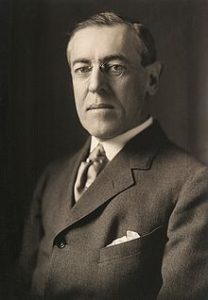 Desperate times call for desperate measures…and sometimes, they call for pleading. On March 23, 1918, two days after the launch of a major German offensive in northern France, British Prime Minister David Lloyd George telegraphed the British ambassador in Washington, Lord Reading, urging him to explain to United States President Woodrow Wilson that without help from the US, “we cannot keep our divisions supplied for more than a short time at the present rate of loss. This situation is undoubtedly critical and if America delays now she may be too late.” Of course, nothing happens quickly in government, but this was a different thing. In response, President Wilson agreed to send a direct order to the commander in chief of the American Expeditionary Force, General John J. Pershing, telling him that American troops already in France should join British and French divisions immediately, without waiting for enough soldiers to arrive to form brigades of their own. Pershing agreed to this on April 2, providing a boost in morale for the exhausted Allies.
Desperate times call for desperate measures…and sometimes, they call for pleading. On March 23, 1918, two days after the launch of a major German offensive in northern France, British Prime Minister David Lloyd George telegraphed the British ambassador in Washington, Lord Reading, urging him to explain to United States President Woodrow Wilson that without help from the US, “we cannot keep our divisions supplied for more than a short time at the present rate of loss. This situation is undoubtedly critical and if America delays now she may be too late.” Of course, nothing happens quickly in government, but this was a different thing. In response, President Wilson agreed to send a direct order to the commander in chief of the American Expeditionary Force, General John J. Pershing, telling him that American troops already in France should join British and French divisions immediately, without waiting for enough soldiers to arrive to form brigades of their own. Pershing agreed to this on April 2, providing a boost in morale for the exhausted Allies.
The non-stop German offensive continued to take its toll throughout the month of April, however, because the majority of American troops in Europe, who were now arriving at a rate of 120,000 a month, were still not sent into battle. In a meeting of the Supreme War Council of Allied leaders at Abbeville, near the coast of the English Channel, which began on May 1, 1918, Clemenceau, Lloyd George and General Ferdinand Foch, the recently named Generalissimo of all Allied forces on the Western Front, was trying hard to persuade Pershing to send all the existing American troops to the front at once. Pershing resisted, reminding the group that the United States had entered the war “independently” of the other Allies, and indeed, the United States would insist during and after the war on being known as an “associate” rather than a full-fledged ally. He further stated, “I do not suppose that the American army is to be entirely at the disposal of the French and British commands.” I’m sure his remarks brought with them, much concern.
On May 2, the second day of the meeting, the debate continued, with Pershing holding his ground in the face of 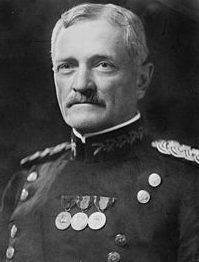 heated appeals by the other leaders. He proposed a compromise, which in the end Lloyd George and Clemenceau had no choice but to accept. Pershing proposed that the United States would send the 130,000 troops arriving in May, as well as another 150,000 in June, to join the Allied front line. He would not make provision for July. This agreement meant that of the 650,000 American troops in Europe by the end of May 1918, roughly one third would go to battle that summer. The other two thirds would not go to the front until they were organized, trained and ready to fight as a purely American army, which Pershing estimated would not happen until the late spring of 1919. I’m sure Pershing’s concern was poorly trained soldiers fighting with little chance of winning. Still, by the time the war ended on November 11, 1918, more than 2 million American soldiers had served on the battlefields of Western Europe, and some 50,000 of them had lost their lives. The United States did go into battle and help win that war, but many thought that the delays cost lives.
heated appeals by the other leaders. He proposed a compromise, which in the end Lloyd George and Clemenceau had no choice but to accept. Pershing proposed that the United States would send the 130,000 troops arriving in May, as well as another 150,000 in June, to join the Allied front line. He would not make provision for July. This agreement meant that of the 650,000 American troops in Europe by the end of May 1918, roughly one third would go to battle that summer. The other two thirds would not go to the front until they were organized, trained and ready to fight as a purely American army, which Pershing estimated would not happen until the late spring of 1919. I’m sure Pershing’s concern was poorly trained soldiers fighting with little chance of winning. Still, by the time the war ended on November 11, 1918, more than 2 million American soldiers had served on the battlefields of Western Europe, and some 50,000 of them had lost their lives. The United States did go into battle and help win that war, but many thought that the delays cost lives.
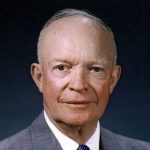
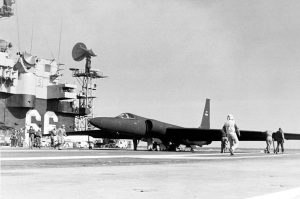 Americans don’t really like to think that our military is out spying on other countries, but like it or not, we spy on them, and they spy on us. We know it and they know it. So, spying is not really the problem…it’s getting caught that causes a problem. Getting caught is the ultimate faux pas, and that is what happened on May 1, 1960, when an American U-2 spy plane was shot down over the Soviet Union while conducting espionage. The plane was being operated by Central Intelligence Agency pilot Francis Powers, under the order of the CIA. The U-2 spy plane was the brainchild of the CIA, and it was in all reality, a sophisticated technological marvel. It could travel at altitudes of up to 70,000 feet, and it was equipped with state-of-the-art photography equipment that could, according to the CIA, take “high-resolution pictures of headlines in Russian newspapers as it flew overhead.” The flights over the Soviet Union began in mid-1956, and the CIA assured President Eisenhower that the Soviets did not possess anti-aircraft weapons sophisticated enough to shoot down the high-altitude planes. How wrong they were.
Americans don’t really like to think that our military is out spying on other countries, but like it or not, we spy on them, and they spy on us. We know it and they know it. So, spying is not really the problem…it’s getting caught that causes a problem. Getting caught is the ultimate faux pas, and that is what happened on May 1, 1960, when an American U-2 spy plane was shot down over the Soviet Union while conducting espionage. The plane was being operated by Central Intelligence Agency pilot Francis Powers, under the order of the CIA. The U-2 spy plane was the brainchild of the CIA, and it was in all reality, a sophisticated technological marvel. It could travel at altitudes of up to 70,000 feet, and it was equipped with state-of-the-art photography equipment that could, according to the CIA, take “high-resolution pictures of headlines in Russian newspapers as it flew overhead.” The flights over the Soviet Union began in mid-1956, and the CIA assured President Eisenhower that the Soviets did not possess anti-aircraft weapons sophisticated enough to shoot down the high-altitude planes. How wrong they were.
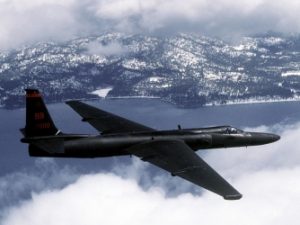 On May 1, 1960, over Russia, a U-2 flight piloted by Francis Gary Powers disappeared, while doing reconnaissance. The CIA reassured the president that, even if the plane had been shot down, it was equipped with self-destruct mechanisms that would render any wreckage unrecognizable and the pilot was instructed to kill himself in such a situation. Looking at the wreckage, I suppose it was unrecognizable…to a degree, at least in the picture, but how can a pilot be ordered to kill himself. I don’t know about you, but I would have to disobey that order. Apparently Powers felt the same way, because he parachuted out, rather than crash with the plane. Still, based on this information, the United States government issued a statement indicating that a weather plane had veered off course and supposedly crashed somewhere in the Soviet Union. Khrushchev took great pleasure in embarrassing the United States when he produced not only the mostly-intact wreckage of the U-2, but also the captured pilot…very much alive.
On May 1, 1960, over Russia, a U-2 flight piloted by Francis Gary Powers disappeared, while doing reconnaissance. The CIA reassured the president that, even if the plane had been shot down, it was equipped with self-destruct mechanisms that would render any wreckage unrecognizable and the pilot was instructed to kill himself in such a situation. Looking at the wreckage, I suppose it was unrecognizable…to a degree, at least in the picture, but how can a pilot be ordered to kill himself. I don’t know about you, but I would have to disobey that order. Apparently Powers felt the same way, because he parachuted out, rather than crash with the plane. Still, based on this information, the United States government issued a statement indicating that a weather plane had veered off course and supposedly crashed somewhere in the Soviet Union. Khrushchev took great pleasure in embarrassing the United States when he produced not only the mostly-intact wreckage of the U-2, but also the captured pilot…very much alive.
It was at this point that President Eisenhower had to publicly admit that it was indeed a United States spy plane. On May 16, a major summit between the United States, the Soviet Union, Great Britain, and France 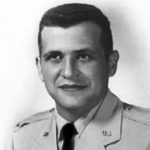
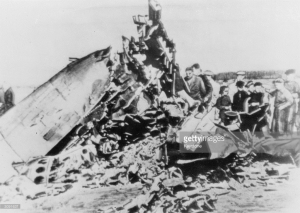 began in Paris. Issues to be discussed included the status of Berlin and nuclear arms control, but as the meeting opened, Khrushchev launched into a tirade against the United States and Eisenhower and then stormed out of the summit. The meeting collapsed immediately and the summit was called off. Eisenhower considered the “stupid U-2 mess” one of the worst debacles of his presidency. The summit was supposed to solve some things, but it ended up making matters much worse.
began in Paris. Issues to be discussed included the status of Berlin and nuclear arms control, but as the meeting opened, Khrushchev launched into a tirade against the United States and Eisenhower and then stormed out of the summit. The meeting collapsed immediately and the summit was called off. Eisenhower considered the “stupid U-2 mess” one of the worst debacles of his presidency. The summit was supposed to solve some things, but it ended up making matters much worse.

